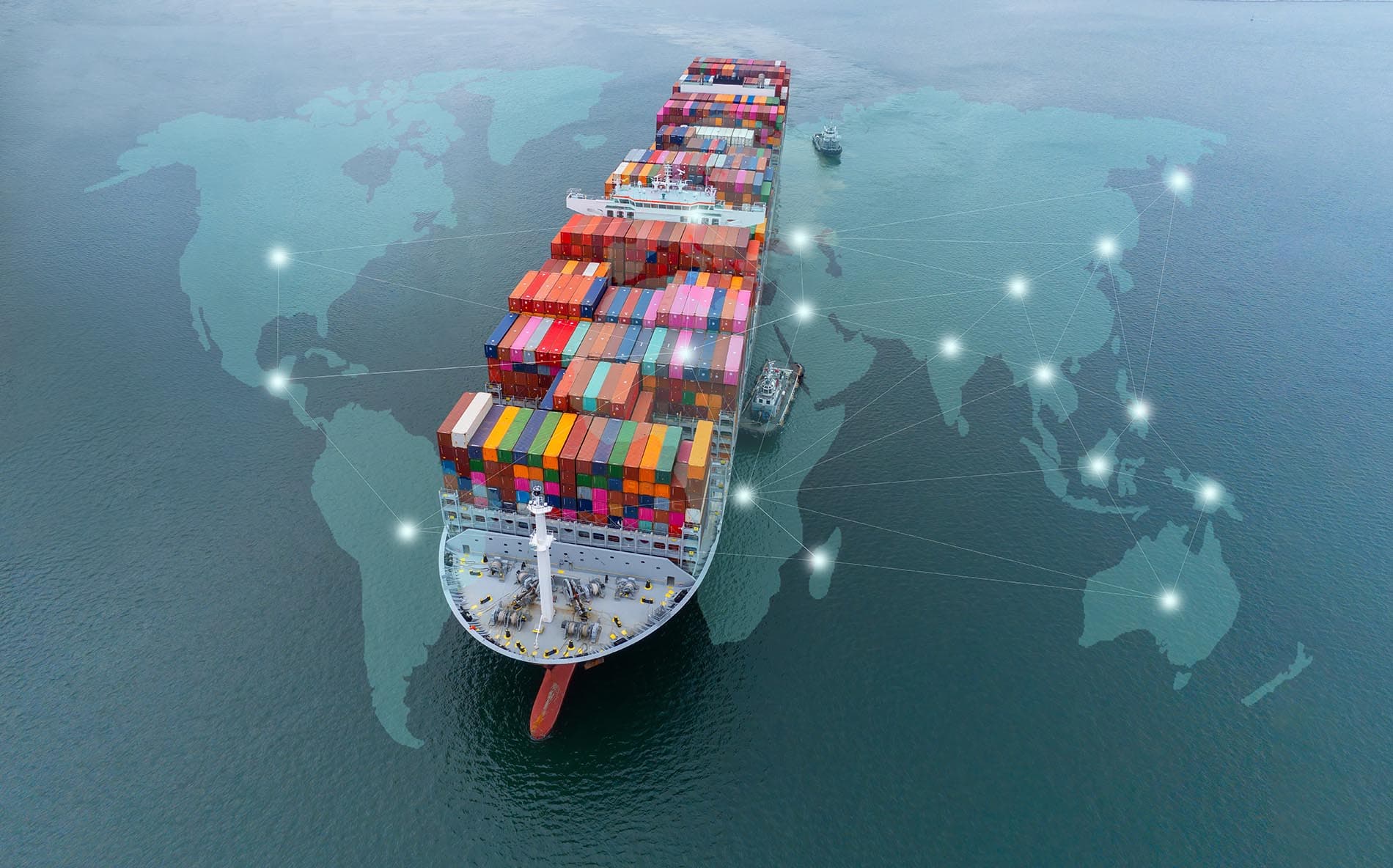Globalaw in the news.
 Mar 2025
Mar 2025Incoterms and Tariff Mitigation
An increasingly complex landscape for international trade is presenting new challenges for cross-border business. Geopolitical tensions, fluctuating tariffs, and diverging trade policies have introduced significant uncertainty for buyers and sellers internationally. The prospect of increased tariffs disrupts pricing expectations and predictability around international commercial arrangements. In this environment, the mitigation and management of potential tariff risks are paramount for cross-border businesses.
To this end, Incoterms (International Commercial Terms) are important tools to help mitigate risks associated with increased costs caused by tariffs. Incoterms are a set of globally standardized contractual terms used for risk and responsibility management between international commercial entities.
While Incoterms do not directly address tariffs themselves, they can be used to allocate cost and payment obligations to minimize trade disruptions caused by tariffs.
BACKGROUND
Originally developed by the International Chamber of Commerce (ICC) in 1936, Incoterms have evolved over time to address the changing demands of global trade. There are currently a set of eleven (11) internationally recognized Incoterms that are used to provide clarity and consistency in international trade contracts.
The latest iteration, Incoterms 2020, has been updated to reflect modern trade realities.
COMMON INCOTERMS AND TARIFF MITIGATION STRATEGIES
Some of the most common Incoterms used in commercial contracts for tariff mitigation strategies include:
1. Delivered Duty Paid (DDP)
In an unpredictable tariff environment, Delivered Duty Paid (DDP) is an ideal Incoterm for use by buyers seeking price certainty and risk protection from fluctuating tariffs.
Under DDP, the seller delivers goods cleared for import and ready for unloading at a named location. The seller is responsible for the costs and risks associated with final delivery, including the payment of tariffs.
DDP can assist buyers in uncertain tariff situations in multiple ways. Firstly, DDP provides price stabilization for the delivered goods by ensuring that the seller covers any import tariffs. This mitigates against price increases necessitated by changes in tariffs in the destination country. DDP also provides predictable costs by allowing the buyer to know the total landed cost before delivery. Finally, DDP can help to shield the buyer from uncertainty around the risk of increased tariffs during the transportation process. These factors make the use of DDP in commercial contracts particularly helpful for buyers by providing predictability around prices and costs.
2. Ex Works (EXW)
Ex Works (EXW) is an Incoterm that can be used by sellers who want to limit their tariff exposure. EXW is also helpful to buyers interested in managing tariff risks by taking advantage of potentially favorable tariff rates, depending on their location.
Under EXW, the seller ensures that goods are available for shipment at their premises, or another agreed-upon location. The buyer then assumes full responsibility for arranging shipment, transport and meeting customs regulations, including paying applicable tariffs in the importing country.
Under EXW, the seller’s responsibilities end once the goods are made available for transport, thereby limiting their tariff exposure. EXW also gives the buyer control to manage tariff risks based on their location. For example, if the buyer is located in a region with favorable tariff rates or subject to a free trade agreement, the buyer can import the goods at a lower tariff rate than may exist in other regions. EXW also presents opportunities for the buyer to arrange shipping routes with advantageous tariff rates.
3. Free on Board (FOB)
Free on Board (FOB) is technically an Incoterm applicable only to inland waterway transport but used commercially for other modes. FOB is particularly beneficial to sellers looking to minimize their tariff exposure throughout the shipping process.
Under FOB, the seller is only responsible for the costs of clearing goods for export and for their delivery onto a vessel for transport at a named port of departure. As soon as the goods are over the ship’s rail when loaded on to the transport vessel, the buyer becomes liable for risks and costs, including import clearance and tariff payment in the destination country.
Using FOB in commercial contracts minimizes the seller’s tariff risk. It also allows the buyer flexibility to take advantage of shipping destinations that may benefit from lower tariff rates and free trade agreements.
4. Free Carrier (FCA)
Free Carrier (FCA) is an Incoterm that provides flexibility to both the buyer and seller to collaborate on tariff mitigation strategies around advantageous delivery points that may benefit from lower tariff regions or trade agreements.
FCA allows the seller to deliver goods to a carrier at an agreed location, that can be chosen strategically to minimize tariffs for the buyer. Once transferred at the delivery point, the buyer assumes responsibility for import tariffs and customs clearance. FCA allows the buyer more control over customs procedures and can facilitate the use of shipping routes that minimize tariff exposure, depending on the agreed delivery point. Under FCA, both the seller and buyer can benefit from tariff risk minimization.
The use of Incoterms provides businesses with the opportunity to be proactive in managing commercial activities in the face of increasing tariff threats. Counsel can assist in identifying and implementing appropriate Incoterms to address specific considerations around optimizing supply chains, leveraging trade agreements and other risk allocation strategies to ensure smooth international transactions in the current global trade environment.
 Dec 2024
Dec 2024Member Spotlight: ADVEL, Reykjavik
As one of Iceland’s leading corporate advisory law firms, ADVEL Attorneys at Law has earned a reputation for international expertise, a strong network, and exceptional services tailored to clients' needs.
In a recent interview, Stefán Þór Ingimarsson, LL.M., partner and associate at ADVEL since 1999, shed light on the firm’s evolution, specialization, and commitment to nurturing talent.
The Firm’s Evolution
Based in Reykjavik, the firm traces its roots back to 1966 with the creation of Logvisi Law Firm, which in 1999 formed the backbone of Fulltingi Legal Services. Fulltingi split into two specialized entities in 2008, creating ADVEL, a pivotal moment that allowed ADVEL to sharpen its focus on corporate advisory services.
Despite its smaller size post-split, the firm thrived. Its dedication to excellence has been recognized repeatedly, earning high rankings in prestigious legal directories like Legal 500 and Chambers and Partners.
Diversity Across Sectors
ADVEL offers services in company law, commercial law, financing and banking law, mergers and acquisitions, securities market law, (re) insurance, European law, competition law, tax law, restructuring and bankruptcy law, maritime law, and litigation.
Its litigation team provides specialized advice on EU law from partners with firsthand experience in Brussels. The firm also plays a vital role in Iceland’s high-energy sector, advising companies engaged in hydro and geothermal energy projects—two cornerstones of the nation’s renewable energy landscape.
International Expertise
One of the firm’s most defining traits is its international expertise. Many of its partners and associates have studied or gained professional experience abroad, bringing their clients a wealth of knowledge and a global perspective. This international acumen proved invaluable during Iceland’s 2008 economic collapse when the firm was critical in restructuring and relisting companies on the Stock Exchange.
The Globalaw Advantage: Facilitating Success for Global Clients
ADVEL stands out for its robust cross-border work. The firm’s ability to navigate the complexities of multinational operations stems from its long-standing connection to the Globalaw network. Stefán, who forged this relationship with the association in 2007 during his PhD studies in the Netherlands, emphasized the association's importance in quickly providing high-quality information, support, and connections to clients. The firm frequently collaborates with Globalaw members, particularly in Denmark and the Netherlands, as well as Luxembourg and the UK, to offer seamless, comprehensive legal support to companies with multinational operations.
One example is ADVEl’s work with Hampidjan Group, a NASDAQ Nordic-listed company and global supplier of fishing gear, aquaculture equipment, and super towing ropes. In collaboration with Globalaw members, the firm has facilitated several multinational M&A transactions and advisory for Hampidjan, including the acquisition of an 80% controlling stake in two Scottish companies. Globalaw advice has been sought in several jurisdictions for Hampidjan Group, including in Denmark, Faroe Islands, Lithuania, Spain, and the Netherlands.
A Culture of Growth and Inclusion
Perhaps ADVEL’s most significant differentiator is its commitment to cultivating talent from within. Many partners began their careers as associates and have been with the firm for 10 to 20 years, with several professionals returning after gaining experience elsewhere. This dedication to internal growth has fostered a loyal, close-knit team and built a culture of inclusion and organic development that has become central to its success and longevity.
Visit https://advel.is/ to learn more.
.png&w=3840&q=75) Oct 2024
Oct 2024Member Spotlight: Simpson Western, New Zealand
Russell Weir, a partner at Simpson Western, spoke with me about the firm and its history. The firm opened in 1985 and is now regarded as the North Shore of Auckland’s leading law firm. Next year, Simpson Western will celebrate 40 years in business!
For the past forty years, Simpson Western has been providing tailored and personalized services to clients onshore and offshore. I asked Russell what clients love most about the firm. He passionately said, “We are focused on and look to establish long-term relationships with our clients, rather than working for people on a one-off transactional basis.”
The firm prioritizes strong connections with clients and colleagues. To do this, when possible, they leverage their geography to forge relationships, creating opportunities for people to meet in person, whether that be clients or colleagues. The firm has a culture committee that helps foster an approachable environment and serves as an open forum for everyone to get together.
New Zealand's Economic Strengths
Tourism, along with agriculture, makes up a large part of the country’s economy. And green business is important and viable in New Zealand. Many New Zealand businesses are incorporating ESG into their business practices – In fact, Simpson Western published a business brief on legislation that was passed in 2023. The Companies (Directors’ Duties) Amendment Act 2023 stipulates that company directors can consider matters other than profits when acting in the best interest of the company. And, New Zealand is also highly regarded from a business transparency perspective.
Sustainability Focus
Simpson Western is also committed to being a responsible and sustainable business, with a strong sense of community and social responsibility. The firm supports various local initiatives and charities, such as the North Harbour Club, and the North Shore Hospice.
Practice Areas
Simpson Western has diverse practice areas. From employment, corporate/commercial, M&A, and business litigation to marriage dissolution and family law, the firm advocates for every client. Their team of 40 is large enough to handle complex matters yet small enough to offer personalized services. This specialty of dealing with businesses of scale allows them to handle transactions from a few million to a few hundred million.
Since 1985, the firm has stayed true to its client-centric approach. As the firm celebrates its anniversary and reflects on the past forty years, we look forward to seeing what they do over the next forty years.
Visit www.simpsonwestern.co.nz/ to learn more.
 Oct 2024
Oct 2024Personal Data Law
After seven years of processing, last August 26, the Congress approved the bill that regulates the protection and processing of Personal Data, creating the Agency for the Protection of Personal Data, corresponding to bulletins No. 11,092-07 and 11,144-07 (hereinafter, the“Bill”). This initiative implies a profound reform of Law No. 19,628, previously known as the “Law on the Protection of Private Life”. Therefore, preventive constitutional review by the Constitutional Court is still pending, as well as its subsequent promulgation and publication for it to enter into force.
Read more here.
.png&w=3840&q=75) Aug 2024
Aug 2024Member Spotlight: Lexincorp, Costa Rica
Welcome to the August Member Spotlight on Lexincorp, one ofGlobalaw's Latin America member firms. Lexincorp serves the Guatemala, El Salvador, Honduras, Nicaragua, and Costa Rica markets.
I recently had the pleasure of speaking with partner PhilipAndré Sanchez. Lexincorp's history exemplifies the international ties of Globalawmember firms—for example, the history of Lexincorp's Costa Rica office. The Costa Rica office was founded by Philip's father, Dr.Arnolodo André, and it exemplifies the values of Globalaw for meeting international clients' needs by providing a stellar service enhanced by local connections and knowledge.
Dr. Arnoldo André earned his PhD in Hamburg, Germany, and in 1989 came back to Costa Rica to practice law. At the time there were fewer than 1000 lawyers in Costa Rica, few of whom understood the German language and culture.
Because of this, Dr. André developed a strong German client-base and ended up focusing his practice on foreign investment.
His firm, previously called André Tinoco & Asociados, became the bridge between both cultures – Costa Rica and Germany. He provided – as Lexincorp does today – local knowledge, connections, and legal know-how to investors from other countries. And the firm continues to provide this meaningful work. Dr. André is currently out of the office as he is serving as Minister of Foreign Affairs for the term 2022-2026.
In fact, Lexincorp continues to develop. Not only does it provide legal resources throughout multiple Central American countries, it has expanded its services to meet other needs for this same clientele. The office also created ATA Trust S.A., to provide escrow services and custody of funds for many foreign investors to use to facilitate sending investment funds, with a personalized and accessible team.
Today, Lexincorp is highly ranked among its peers – with top scores for client satisfaction. This is a direct result of Lexincorp’s approach to developing and nurturing client relationships. As Philip passionately said, “we speak in plural when we’re working with our clients.” The firm becomes a part of the client's team, and that specialized and focused relationship is one of their biggest advantages.
Coupled with their client-centric approach is their caring culture for their internal team – an approach that treats people with an understanding and appreciation of the necessity of a work/life balance.
Lawyers and staff can bring their children to the office. They can even bring their pets – the office has a dog park! The firm has taken several steps to help their professionals balance and integrate all the different aspects of their life. And by doing so, the firm has seen significant improvements in productivity.
Leaders at Lexincorp have a vision: a firm where every lawyer is passionate about the work that they are doing. This vision has drawn passionate young workers, and the client response has been overwhelmingly positive, with clients welcoming fresh perspectives to their teams with traditional values and the expertise of the senior counsels.
Recently, Lexincorp opened a branch in the Pacific Coast – Santa Teresa. Santa Teresa is a remote town in Puntarenas Providence, Costa Rica, and started as a remote fishing village. During the COVID-19 pandemic, many people from the United States came to Santa Teresa and used it as a haven and place to escape. Tourism has become a significant economic driver in the area, with a related demand for legal services, often with very quick turn arounds as people are often only in town for a short amount of time. To meet that need, Lexincorp started a local office, to allow it to provide consistent, local client services in expedited time frames.
By the end of the interview, it was clear: Lexincorp not only serves an international market, but it also continues to look for ways to improve and expand those services, while remaining true to core Globalaw values.
 Jul 2024
Jul 2024Progressions in Philippine Maritime Law – Opening the Gates Via the Amended Public Service Act
The Philippines has long been considered the sick man of Asia. With repeated moves to open up its economy and liberalize industries in the name of development and foreign investments, the Public Service Act has finally been amended. This is the breakthrough that supposedly a lot of industries have been waiting for, the shipping industry included. This article aims to give a glimpse into what may lie ahead for shipping and its related businesses.
 May 2024
May 2024Member Spotlight: PCV, Cyprus
Continuing with Globalaw’s 30th-anniversary celebration, the next member firm spotlight is Pelaghias, Christodoulou, Vrachas LLC from Cyprus. Over the last few weeks, I’ve had the pleasure of talking to managing partner Alexandra Pelaghias-Christodoulou.
As Alexandra started talking, it was palpable that the Firm is surrounded by the dense and rich history of Cyprus. The saying, “Scratch the soil anywhere in Cyprus, and you will find traces of its magnificent past”, is not an exaggeration. The island’s history is not confined to the ancient tombs or the oldest wine label; it’s entrenched in one of the most established and oldest law firms in Cyprus – Pelaghias. Alexandra proudly explained that the Firm celebrated their 100th anniversary in 2020. For over 100 years, Pelaghias has committed to build lasting relationships, both with their clients and firm members.
Alexandra explained that since they are not a big firm, they can strive to provide personal service to each client. As opposed to many larger firms, clients of Pelaghias not only know who their lawyer is but can speak to that lawyer anytime they need assistance. Their motto is personal service, and caring for their clients is paramount. A recent example? The firm advised a foreign tech company active in the power and telecommunications sector with revenues exceeding 1 billion euros. The company has physically relocated its headquarters to Cyprus, and Pelaghias assisted with its corporate restructuring and reorganization.
And it’s not surprising to find a company moving there. Cyprus is the third largest island in the Mediterranean and is between Europe and Eurasia, and Northern Africa and the Middle East. Its strategic position has led it to be among the most prosperous and educated countries in the Mediterranean region. In fact, it hosts several recognized universities that draw students from all over the world. Cyprus also has a friendly business environment. Pelaghias can help those who want to invest in the MENA region (Middle East, North Africa), since the Firm has strong relations with the region that partly operates under Sharia law. An increasing number of individuals are using Cyprus to invest in other jurisdictions that do not operate under a common law system.
As we neared the end of our time, I asked Alexandra how the Firm has pivoted to the changing technological innovations in the 21st century, especially Artificial Intelligence. Alexandra quickly responded that Pelaghias is becoming a regional hub for technology companies. They host the Reflect Festival, the largest Tech & Entrepreneurship event in Limassol. It has thousands of attendees per year – which is no simple feat for an island of 1,000,000. Alexandra also spearheaded the technology and AI department to ensure that the Firm stays relevant in its use of technology and AI to provide clients with excellent, personalized legal services. However, the increased emphasis on technology and AI results in organizations needing to deploy security protections – and Pelaghias has done just that. The firm will be certified by June with the following ISO modules:
- ISO 90001:2015 = Quality Management Systems (QMS)
- ISO 45001:2018 = Occupational Health & Safety System (OH&S)
- ISO 14001:2015 = Environmental Management System (EMS)
- ISO 27001:2022 = Information Security Management System (ISMS)
It is a great accomplishment for Pelaghias and rare for law firms to earn ISO certifications, another reason why Pelaghias is among the leading firms in their region.
The adage “the more things change, the more they stay the same” holds true for Pelaghias, a Cyprus law firm celebrating a 100-year tradition. They have and continue to assist companies and individuals with aviation, banking & finance, blockchain & technology, corporate and commercial, litigation, taxation, and much more. They’ve pivoted in the wake of the COVID-19 pandemic, the rise of artificial intelligence, and the security awareness movement, while staying true to the values engrained in the firm’s leadership since it was founded in 1920 by John G. Pelaghias.
Visit www.pelaghiaslaw.com/ for more information.
.png&w=3840&q=75) Mar 2024
Mar 2024Member Spotlight: EMD, Malta
Globalaw is kicking off its member spotlight series for its 30th Anniversary celebration. The first member firm, EMD, is from Malta. Recently, I had the pleasure of catching up with EMD's Pierre Mifsud and Lisa Vassallo. From the beginning, you could tell that EMD is a special place, with the kind of lawyers with whom we would all like to work. These are problem solvers committed to relationships, diversity, history and creativity.
As Lisa started talking, I could see the beautiful white tiled vault structure of their offices behind her - an office built into a historical building and located in Valletta, both the capital and one of the historical centres. Lisa's first words were about the clients who had just left - headed to a nearby restaurant to celebrate the project's successful conclusion, with which EMD was helping. EMD's pride in the relationships they build with clients was quickly apparent, as Lisa apologized for being a few minutes late as she'd had to beg off repeated lunch invitations and lots of hugs from that client to be able to make our meeting. As she spoke, the importance of EMD in their relationships with clients -their partnerships with those clients- was striking.
That focus on relationships goes beyond clients. EMD employs lawyers and staff from around the world and celebrates that diversity routinely. Whether through various lunches, where employees cook food to share from their native countries, or planned social events, the group is clearly based on relationships - relationships that allow firm members to work strategically across teams and provide the type of integration that makes legal advice seamless. EMD's substantive prowess is equally impressive. A recent example? Setting up a Ritz Carlton cruise line from scratch. Essentially, EMD has helped launch this entire operation: establishing physical offices for infrastructure support, financing and registering the vessels, providing corporate advice and assistance, drafting contracts, and developing key employment strategies, including work and residential permits. It is a multi-phased project; the first ship sailed last summer, with the next set to deliver in June of 2024 and with more ships to follow.
It is exactly the kind of project that shows the depth and breadth of EMD's lawyers and their ability to work so seamlessly between their varied teams.
And they do so not just in Malta. Given Malta's strategic location between Africa and Europe, it should be no surprise that EMD's lawyers have strong ties in both locations. Recognized by many as an ideal entry point to the European Union, companies from Africa and the Americas find strategic value in locating here. And the opposite is equally true, with EU firms using Malta to be closer to North Africa. EMD is well positioned to assist these companies as they use Malta's strategic location to better connect with both jurisdictions.
While I'm on the call, I'm already considering when I could visit - both to see this incredible island and its history and also to connect with EMD. But Malta is much more than a tourist destination. Malta has a strong local industry that focuses on financial services, shipping, aircraft maintenance, aircraft registration, and pharma manufacturing. I asked Pierre, one of the founding members of the firm (which will celebrate its 25th anniversary in 2025), why pharma? When registering their patents, he explained that the major drug companies often skipped Malta as "unimportant." But that meant that Malta became quite significant - essentially the land of opportunities for the generic drug companies to come in, stockpile and manufacture. It became a key entry point for pharma manufacturing in the rest of the world and underscores how a small jurisdiction can become a critical opportunity.
As we neared the end of our time, I asked Pierre if he had any last words of advice for the business person who had not worked in Malta recently. Pierre quickly responded, tying together both the legal and practical advice for which EMD is recognized and pointing to Malta's increased focus on the substance of companies trying to claim Malta as their home. With tax, anti-money laundering, and increased expectations of substantial involvement, things like physical presence, employees, and local board involvement have become increasingly important. And EMD can help sort through all of those issues.
In fact, EMD's creativity has gone beyond just legal services in supporting its clients. It formed a technology company to assist with the implementation, configuration, and maintenance of enterprise resource planning (ERP) systems. The company also developed its own software suite dealing with payroll and procurement, particularly for Libya (including the deductions and taxes that are required there).
Visit www.emd.com.mt/ to learn more.
 Jan 2024
Jan 2024Take aways on the government of Florida's prohibitions on acquisition of real property in Florida by foreign principals
Florida’s new law, the Conveyances to Foreign Entities Act (the "Act"), Sections 692.201 – 205, Florida Statutes, went into effect on July 1, 2023, and redefined the Florida real estate market for foreign purchasers from seven “countries of concern.” The Act requires those foreign purchasers to determine whether they are Foreign Principals prohibited from acquiring or owning real property in Florida, whether they are subject to registration requirements, or whether they are required to dispose of such real estate. Non-compliance renders the real property subject to forfeiture and sale of such real property (subject only to the rights and interests of bona fide lienholders) and risks daily fines of $1,000 and criminal penalties.
 Nov 2023
Nov 2023The Corporate Transparency Act takes effect on January 1, 2024 – does your company have to report its beneficial owners to the federal government?
Effective on January 1, 2024, the U.S. Corporate Transparency Act (CTA) will require “reporting companies” to disclose to the U.S. government’s Financial Crimes Enforcement Network (FinCEN) details of their “beneficial owners”.
With the CTA, Congress has passed one of the most significant and sweeping laws affecting LLCs and companies doing business in the United States – covering both domestic and foreign entities – in the most aggressive effort to date against illicit terrorist financing, fraud and money laundering.
This client alert discusses the CTA’s reach and exceptions and disclosure obligations, which are retroactive and go well beyond any disclosure previously expected.
 Oct 2023
Oct 2023Foreign businesses doing business in Australia - some initial indirect tax considerations
Doing business in, or investing in, Australia may require an understanding of the goods and services tax regime (sometimes referred to as consumption tax, value added tax or goods and services tax). Here is a brief guide on GST in Australia for foreign businesses that may be about to do business, or invest, in Australia.
Read the full article by Ajay Ravi, McInnes Wilson Lawyers
 Oct 2023
Oct 2023Key Australian taxation changes for New Zealand citizens
Are you a New Zealand citizen (or member of a related entity) that has purchased residential-related property or land in New South Wales (NSW)? Are you a New Zealand citizen that is considering becoming an Australian citizen?
If so, there are certain new/revised measures and interpretations of the law and associated guidance which may have a significant impact on your Australian taxation position.
 Oct 2023
Oct 2023New Register Of Foreign Ownership – Investment In Australia Just Got More Complex!
With effect from 1 January 2021, the FATA was amended to (among other things) introduce the Register of Foreign Ownership of Australian Assets. It was contemplated in the amendments to the FATA that the New Register would come into effect at a later time. That later time was 1 July 2023. [...]
Read the full article here
 Sep 2023
Sep 2023Client Alert - Duty to Communicate Beneficial Owner by 11 December 2023
The Decree of September 29, 2023 of the Ministry of Enterprises and Made in Italy concludes the long and troubled regulatory process for the establishment of the Register of Beneficial Owners introduced by Legislative Decree no. 90 of May 25, 2017, implementing Directive (EU) 2015/849 on the prevention of the use of the financial system for the purposes of money laundering or terrorist financing.
Read the full article here

